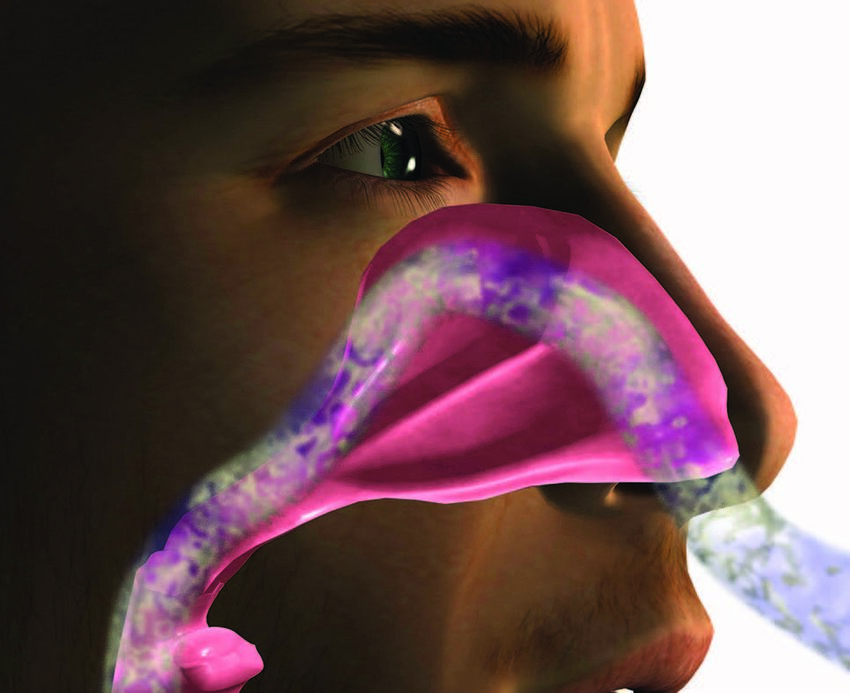 Some researchers believe that by midlife, your all-cause mortality can be predicted by your ability to smell.
Some researchers believe that by midlife, your all-cause mortality can be predicted by your ability to smell.Your sense of smell is one of those things in life that we take for granted and only miss when it is gone.
One’s sense of smell is enabled by Cranial Nerve No. 1, known as the olfactory nerve. This nerve, which is the shortest of the cranial nerves, originates in the cerebrum of the brain. Olfactory nerve fibers run directly from the brain to the upper inside part of the nose. This nerve gives us the ability to smell a variety of scents and aromas. When we inhale, substances that have a scent give off molecules and are detected by the olfactory receptors in the nose. The receptors relay the information to the brain through the olfactory nerve, which allows us to experience the sense of smell.
The ability to use your sense of smell is pivotal to enjoying many aspects of life. The sense of smell is germane in helping one detect the aroma of the wonderful foods and meals we grew up with that were prepared by our families.
Your sense of smell can also warn you of certain hazards such as food that may be spoiled or rancid. Smell can help us detect these things.
Olfactory fibers can also detect pheromones, which are naturally occurring chemical messengers that are secreted when one sweats. According to the National Institutes of Health, these chemical messengers often trigger a social response in members of the same species and are associated with natural behaviors such as sexual attraction, mate selection, danger signaling and more. The topic alone would require a whole book to explain.
Studies have shown that when there is a deterioration of the ability to smell, there is a corresponding deterioration in memory. Smell is one of the first senses to deteriorate with Alzheimer’s disease and many other neurological and psychiatric disorders. This change in cognition is seen in depression, anxiety, attention/deficit disorder, epilepsy and stroke to name a few of the 68 disorders to which smell, and cognition have been connected. Some researchers believe that by midlife, your all-cause mortality can be predicted by your ability or inability to smell.
So, can anything be done to preserve one’s cognition and sense of smell? Well, researchers have now found that one can go through training that can enhance your cognitive skills by improving your ability to smell.
In this study, the essential oils of rose, lavender, orange, peppermint, eucalyptus, lemon and rosemary were delivered through a diffuser for two hours before bedtime. All participants were tested to be cognitively normal, and these pleasant aromas were exposed to individuals (the research group) in a rotation of one scent each night for six months. A control group just got a whiff of the scent.
The studies showed there was a huge improvement in the research group’s (those receiving the rotation of scents) cognitive skills. MRI’s done on the brain before and after the training also showed an increase in the size of the area of the brain involved. This training was found to be a direct highway to the areas of the brain that affect cognition.
This is early information, but the study results show that there are things that can be done to enhance cognitive skills and protect the brain. Now, where did I place that diffuser?
Dr. Veita Bland is a board-certified Greensboro physician and hypertension specialist. Dr. Bland’s radio show, “It’s a Matter of Your Health,” can be heard live on Wednesdays, 5:30 p.m. on N.C. A&T State University’s WNAA, 90.1 FM. Listeners may call in and ask questions. The show is replayed on Sirius 142 at 5 p.m. on Wed. Email Dr. Bland at ideas@blandclinicpa.com.